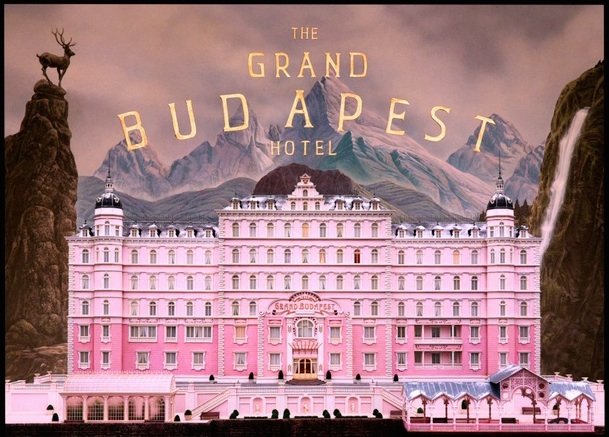The Grand Budapest Hotel, A Kind-of Review
Last night I had the very good fortune to see the latest film from Wes Anderson, The Grand Budapest Hotel, thanks to our friends at the Motion Picture Association of America. After a short reception, we took up our places in the MPAA's 70-seat screening room for short introductions by a Fox exec and the film's music supervisor, and then began the second U.S. screening of this very much-anticipated film. And?
I'll go ahead and say I think it's probably the best thing Wes Anderson has ever made. (The early reviews seem to agree.) I might as well add, I'm not the biggest Wes Anderson fan around: I was an early admirer (of Rushmore especially) who stopped considering him a must-see after some later pictures (Life Aquatic comes to mind) seemed to me too knowingly zany, too forced. And sure, I'll say it: twee. But The Grand Budapest Hotel puts it all together in a way that feels new and yet could only be Wes Anderson.
I went in knowing essentially nothing about the film save for the unbelievably packed cast of A-listers working for scale plus highly regarded indie / foreign stars depicted on the film's alternate poster. I didn't even know who the lead was going to be until about twenty minutes in, and this too was a terrific surprise. You'll probably read enough reviews and coverage (and then there's the trailer) before seeing it that you won't experience the same wide-eyed discovery as I did, but if you can avoid reading much ahead, it'll add to your enjoyment.
So let's see if I can do this justice: it's a Rube Goldberg machine inside a set of Russian nesting dolls, with jaw-dropping sets, charming miniatures, unexpected use of stop-motion animation, and multiple aspect ratios. If that sounds overwhelming, it really isn't: Anderson makes it all work in service of the story. Driven by a varied and sometimes pulse-pounding Eastern-facing classical score, not to mention the between-wars rise of European fascism, it feels more dynamic than some of his recent work, and is surely his most purely exciting film yet.
Two other auteurs I thought of during the film were Quentin Tarantino and, especially, Stanley Kubrick. The Tarantino comparison is more theoretical, in that it's got his madcap mashup of classic tropes from past entertainments—just different ones. The Kubrick comparison is more overt: it's got his use of zooms, one-point perspective, and the Futura typeface. Plus let's not forget the grand, sometimes empty, mountaintop hotel. But the goofball characters, title cards, tonal shifts, and I-want-to-go-to-there production design is all Anderson.
The Grand Budapest Hotel will open in New York and Los Angeles this month, with a wider release to follow. But don't worry: nothing's keeping F. Murray Abraham, Mathieu Amalric, Saoirse Ronan and Léa Seydoux out of American theaters. I'm kidding! It also has Ralph Fiennes, Bill Murray, Edward Norton, Jude Law, Jeff Goldblum and, especially, Willem Dafoe.
Film artwork courtesy Fox Searchlight.

